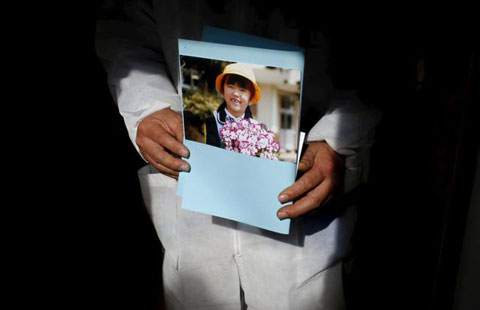Communication a key in graft fight
Updated: 2016-03-11 12:11
By Hezi Jiang in New York(China Daily USA)
|
||||||||
David Firestein, vice-president of the East West Institute, said that the progress made between the United States and China in combating corruption is encouraging.
"What we have seen recently, particularly since last fall, is an increase in the willingness on the part of the United States to work with China on some of these corruption cases and extradition cases," he said.
In 2015 alone, 48 fugitives have returned to China from the US, including three who were forcefully repatriated; whereas only two fugitives suspected of economic crimes were brought back from the US from 2003 to 2013, according to China's Ministry of Public Security.
Firestein believes that effective communication regarding the cases and China's strong attitude on the issue have led to the progress.
"As the United States government, federal police authority, and local police authority have learned more about the specifics regarding certain cases, they have been more willing to work collaboratively toward the common goal of holding people who've violated the law accountable," said Firestein.
"After they have gotten more evidence to substantiate some of the allegations, they've seen that some of them are legitimate cases," he said.
China has been offering the US judicial system "more solid evidence", Zhang Xiaoming, a senior official from China's Ministry of Justice, told China Daily last November.

According to Zhang, apart from information about the fugitives' likely whereabouts, Chinese law enforcement authorities provide a sound report about the suspects' illicit activities back home and the amount of funds they might have transferred abroad, to form a "complete chain of evidence".
"The seriousness with which China seems to be taking this whole process had made an impression on the US policymakers," said Firestein, calling it the second reason the US has been more cooperative.
The Central Commission for Discipline Inspection of the Communist Party, the country's top watchdog, investigated 330,000 cases of graft and frugality violations in 2015, and punished 336,000 officials, a record high number in the past 20 years.
China also has launched a repatriation campaign code-named "Sky Net", targeting 100 key officials who had fled overseas.
"I think what we are seeing is the United States taking seriously China's commitment to anti-corruption," he said. "The government is trying to do what it can within the constraint of US laws, and in some cases, US' concerns about judicial process in China to try to be as helpful as possible."
Firestein believes President Xi Jinping's state visit last September had a positive impact on anti-corruption cooperation. "I think that President Xi was able to make the point to President Obama and to other senior folks he met just how serious China is about its anti-corruption efforts.
"When you put all those things together, that's led to a pretty good number and growing number of cases of success and cooperation, and that number of cases will continue to grow," Firestein said.
Firestein suggests the Chinese government to continue to do what it has been doing.
"Which is to say: Here is the case; here is the evidence; here are the relevant Chinese laws; here is what substantiates these charges; here are witnesses," he said. "That will help US officials to make decisions that are well-informed and probably lead to more instances of repatriations of convicted or alleged criminals."
"Substantiate these charges and meeting US standards is probably the key to success," said Firestein.
hezijiang@chinadailyusa.com

 Beijing sees blue sky during the two sessions
Beijing sees blue sky during the two sessions
 Fukushima five years on: Searching for loved ones
Fukushima five years on: Searching for loved ones
 Robots ready to offer a helping hand
Robots ready to offer a helping hand
 China to bulid another polar ship after Xuelong
China to bulid another polar ship after Xuelong
 Top 10 economies where women hold senior roles
Top 10 economies where women hold senior roles
 Cavers make rare finds in Guangxi expedition
Cavers make rare finds in Guangxi expedition
 'Design Shanghai 2016' features world's top designs
'Design Shanghai 2016' features world's top designs
 Cutting hair for Longtaitou Festival
Cutting hair for Longtaitou Festival
Most Viewed
Editor's Picks

|

|

|

|

|

|
Today's Top News
What ends Jeb Bush's White House hopes
Investigation for Nicolas's campaign
Will US-ASEAN meeting be good for region?
Accentuate the positive in Sino-US relations
Dangerous games on peninsula will have no winner
National Art Museum showing 400 puppets in new exhibition
Finest Chinese porcelains expected to fetch over $28 million
Monkey portraits by Chinese ink painting masters
US Weekly

|

|








